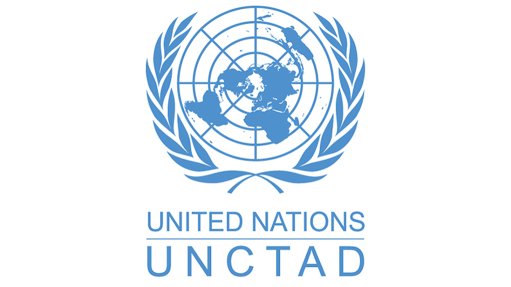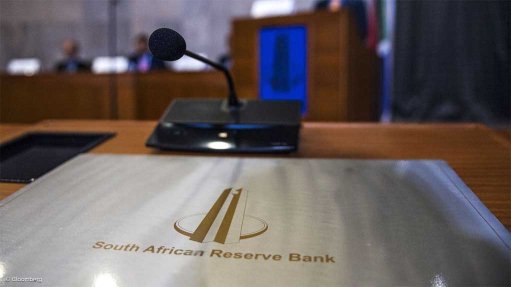Impact of Russia-Ukraine conflict on Africa
The success of the recent Ukrainian counteroffensive, the routing of Russian forces occupying Ukraine and the recapture of key eastern cities and surrounds of Kharkov and Izyum may prove to be a game changer in a war that has had a significant retrogressive effect on politics and business across the world and especially in Africa.
It is too early to say if the collapse of Russia’s forces will see Vladimir Putin redouble the war effort or lead to the collapse of his own power domestically and internationally.
Perhaps the writing on the wall prompted the Putin-linked paramilitary Wagner Group to start pushing Mali’s military junta to pay it before Moscow’s influence collapses – but with other companies’ assets. Wagner established two mining companies and its local representative geologist reportedly asked the Malian junta to “review” the Fekola, Loulo-Gounkoto and Syama mining permits currently operated by Canadian and Australian mining companies and transfer them to Wagner, on the back of complaints that its $10-million-a-month contract has not been paid. Military junta leader Assimi Goïta and his pro- Russia Defence Minister, Sadio Camara, signed an agreement with Wagner in December last year, reportedly to train the Forces Armées Maliennes (FAM). However, soon after Russia’s invasion of Ukraine, Wagner Group mercenaries were reportedly fighting alongside the FAM, prompting France to pull its army back to neighbouring Niger. US-based nongovernmental organisation Human Rights Watch subsequently named Wagner in the execution – alongside the Malian army – of 300 men in central Mali. Unpaid, the Wagner Group is unlikely to do much for the Malian junta. Moreover, faced with increasing pressure in Ukraine, the Russian government recalled its private military companies to join the war in Ukraine, notably from the Central African Republic, where a reduction in mercenaries has been noted since February. The likely result of repatriation of mercenaries will be a short-term increase in instability in the region.
If Ukraine’s defeat of Russian forces is sustained, the timeline for the war-induced crisis will be shortened, supply chains will settle and economic recovery will forge ahead. Africa’s Finance Ministers will be relieved. The impact on Africa’s economies has been enormous – particularly after Covid-19. But the scale of the impact is also directly related to each country’s dependence on oil and gas imports or commodities exports, imported grain and fertiliser and long-haul tourism. The African Development Bank notes that shortages of supply from Russia and Ukraine have seen wheat prices rise by 60%. Some countries, such as Angola, received a much-needed fillip ahead of elections with the huge hike in the oil price. South Africa, as the world’s second-largest producer of palladium after Russia and competing with it on other metals production, has already benefited from constraints in Russian supply. Ironically, theft of oil production and Nigeria’s dependence on petroleum imports mean that Nigeria’s economy has barely benefited from the oil price hike and is suffering a spike in food inflation. High import bills and the need to subsidise fuel and grain imports to prevent a sharp increase in poverty have ladened several economies – already in a parlous state in several countries after Covid-19 – with yet more debt. Ratings agencies have downgraded several African countries; International Monetary Fund negotiations are completed in Zambia and under way in Ghana and Nigeria. Rising food and energy prices have led to “cost-of-living” riots and protests this year in Angola, Ghana, Guinea, Madagascar, Morocco, Mozambique, Sierra Leone, South Africa, Sudan and Uganda.
The West’s use of sanctions rather than military intervention is unprecedented. The sanctions packages that the European Union and the US introduced were designed to act on a massive scale and as a weapon of war. Sanctions prevent US and eurozone banks, their foreign affiliates, and Russian banks based in the US and eurozone countries from facilitating dollar and euro transactions on behalf of Russian entities, cutting Russian companies off from project financing and trading. These sanctions apply to 95% of Africa’s trade. A permanent shift in global trade is likely, as countries and companies re-assess the geopolitical dependences in their supply chains. Despite China’s decades of trying to encourage trade in the renminbi, nearly all trade is invoiced in US dollars or euros.
Sanctions are working. In May, Nigeria turned to Canada for an emergency supply of potash after being unable to import critical fertiliser from Russia; by July, Kenya National Bureau of Statistics data showed imports from Russia had dropped 66% in the first three months of 2022. A former Russian colleague has quit the Moscow metals trading company for which he was working to move to Dubai, in the United Arab Emirates, to try something new, “as a matter of survival”. Sanctions have brought his industry to a standstill. At a personal level, he was fed up of being a pariah. Over 300 000 Russian professionals left their homeland after the invasion. If Russia redoubles its war effort, the global economic crisis is likely to continue for another year, sanctions will bite harder and these alternative supply chains will solidify.
If there is an upside, sanctions have forced a shift in oil and gas dependences, creating a significant opportunity for Africa’s oil- and gas-producing countries. Putin’s gamble killed both the goose and the golden egg. Europe’s massive market is now more open than ever to African producers. The impetus to develop Algeria, Tanzania, Senegal and Mozambique’s significant gas reserves is unprecedented, although the jury is still out on a proposed Trans-Saharan Gas Pipeline to transport gas by means of a massive pipeline from Nigeria to Algeria.
Either way, the main lesson of Russian neo-imperialism is that it remains imperative for the region to take steps to harden its resistance to external shocks. Everything – from developing regional and Pan-African supply chains to local fertiliser projects such as Nigerian business mogul Aliko Dangote’s Lagos fertiliser plant to target African markets – is essential.
Article Enquiry
Email Article
Save Article
Feedback
To advertise email advertising@creamermedia.co.za or click here
Press Office
Announcements
What's On
Subscribe to improve your user experience...
Option 1 (equivalent of R125 a month):
Receive a weekly copy of Creamer Media's Engineering News & Mining Weekly magazine
(print copy for those in South Africa and e-magazine for those outside of South Africa)
Receive daily email newsletters
Access to full search results
Access archive of magazine back copies
Access to Projects in Progress
Access to ONE Research Report of your choice in PDF format
Option 2 (equivalent of R375 a month):
All benefits from Option 1
PLUS
Access to Creamer Media's Research Channel Africa for ALL Research Reports, in PDF format, on various industrial and mining sectors
including Electricity; Water; Energy Transition; Hydrogen; Roads, Rail and Ports; Coal; Gold; Platinum; Battery Metals; etc.
Already a subscriber?
Forgotten your password?
Receive weekly copy of Creamer Media's Engineering News & Mining Weekly magazine (print copy for those in South Africa and e-magazine for those outside of South Africa)
➕
Recieve daily email newsletters
➕
Access to full search results
➕
Access archive of magazine back copies
➕
Access to Projects in Progress
➕
Access to ONE Research Report of your choice in PDF format
RESEARCH CHANNEL AFRICA
R4500 (equivalent of R375 a month)
SUBSCRIBEAll benefits from Option 1
➕
Access to Creamer Media's Research Channel Africa for ALL Research Reports on various industrial and mining sectors, in PDF format, including on:
Electricity
➕
Water
➕
Energy Transition
➕
Hydrogen
➕
Roads, Rail and Ports
➕
Coal
➕
Gold
➕
Platinum
➕
Battery Metals
➕
etc.
Receive all benefits from Option 1 or Option 2 delivered to numerous people at your company
➕
Multiple User names and Passwords for simultaneous log-ins
➕
Intranet integration access to all in your organisation


















